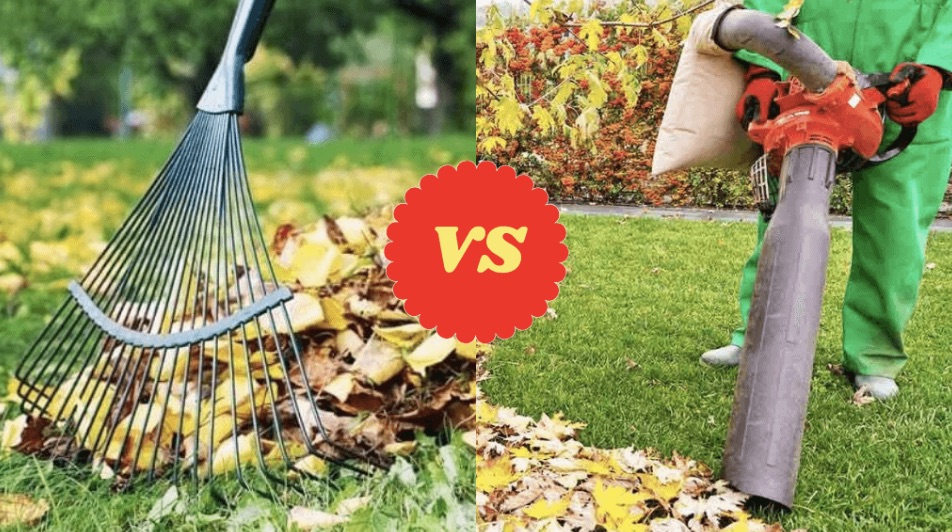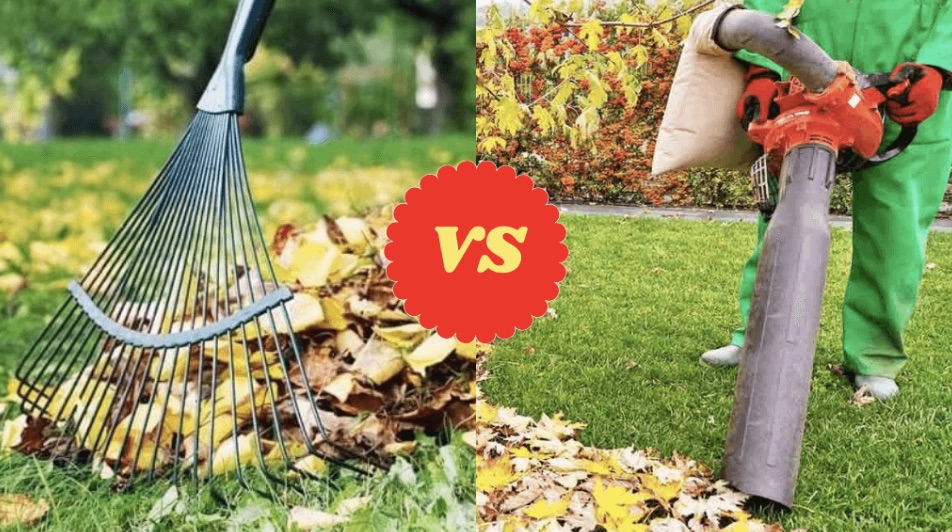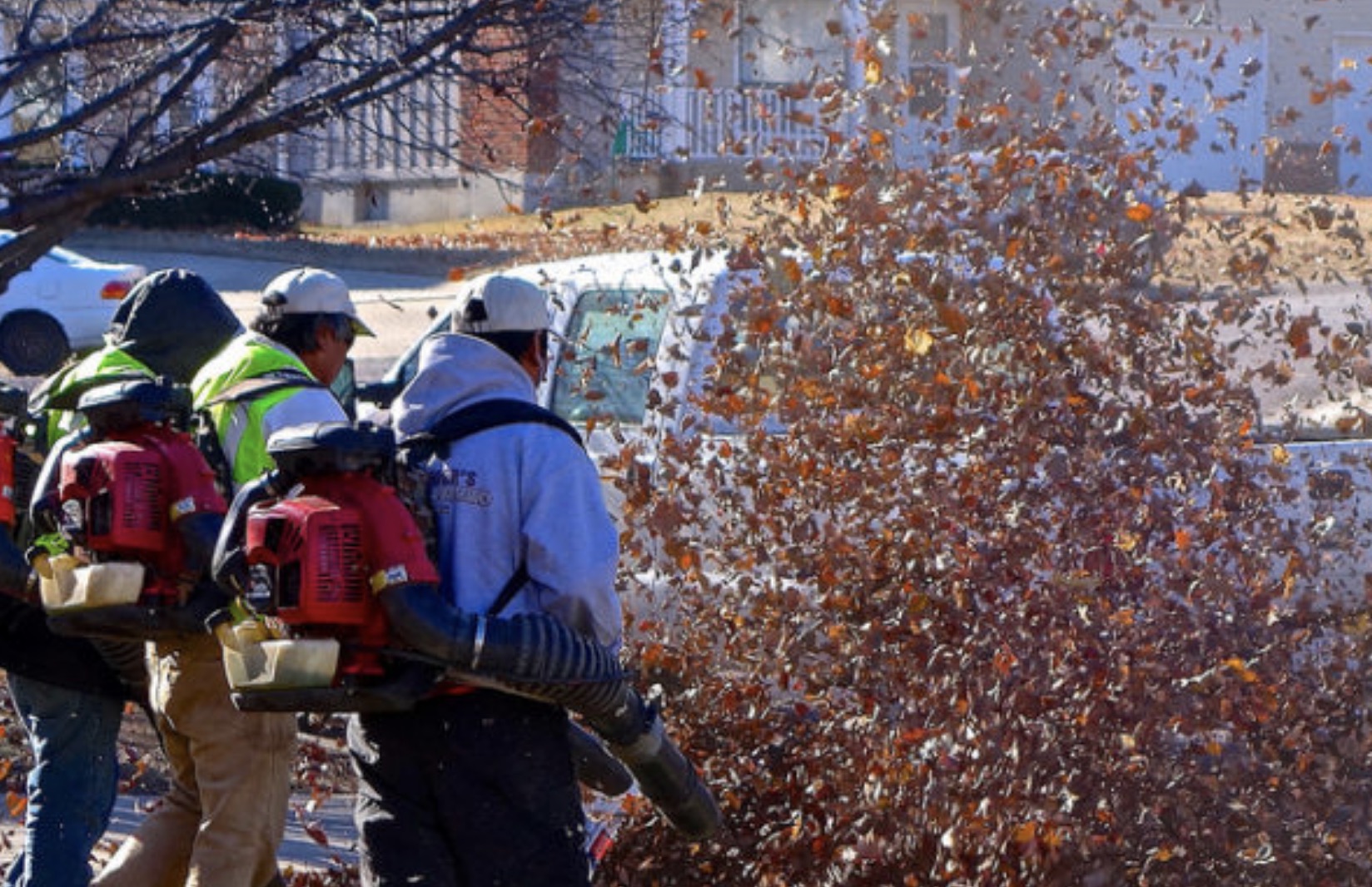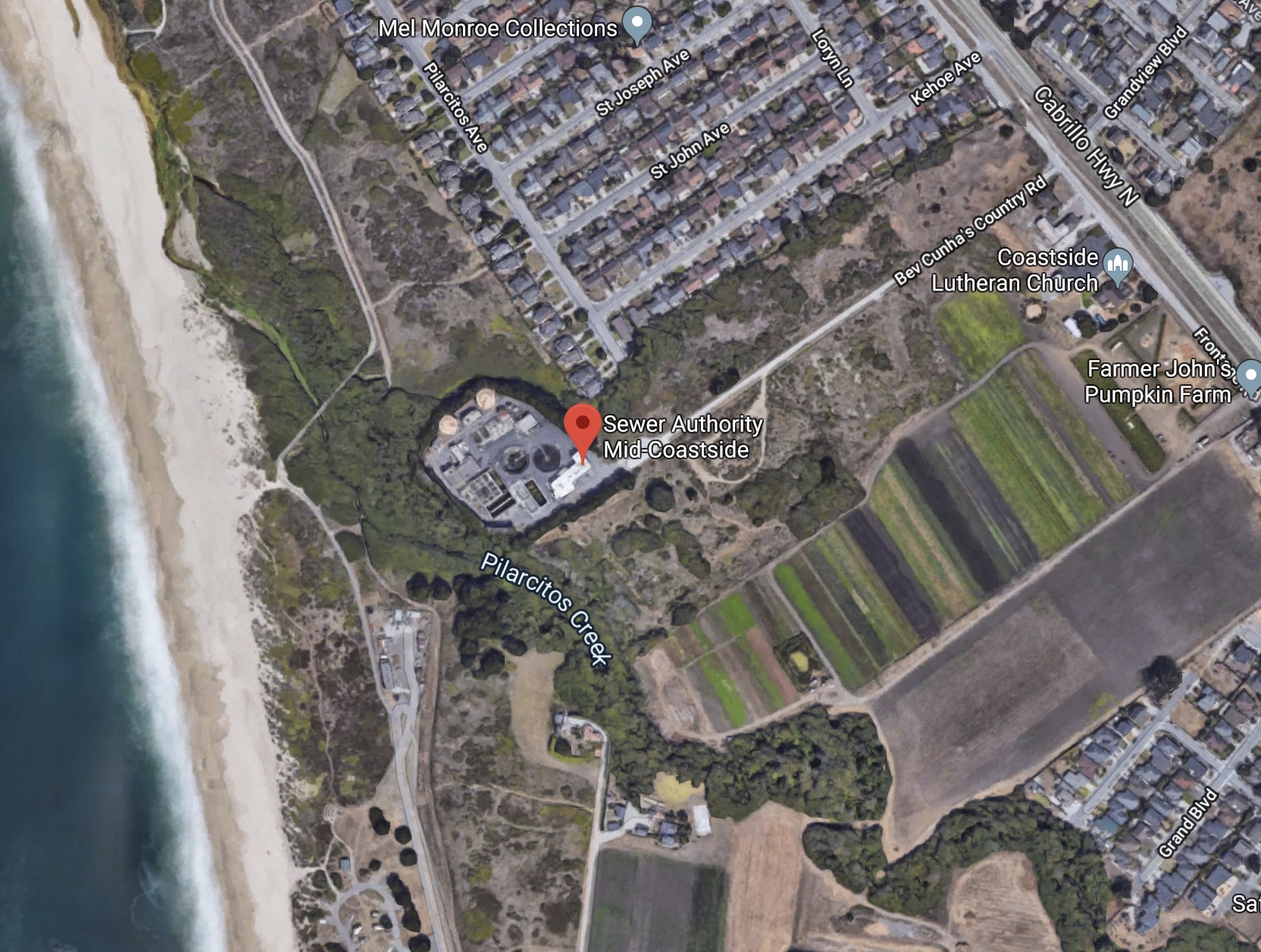|
Getting your Trinity Audio player ready...
|
VIDEO. From the Half Moon Bay City Council meeting on March 16th, 2021.
Councilperson, Dr. Deborah Penrose, brings up gas leaf blowers as a priority for the City. Councilperson Harvey Rarback “seconded” the idea wishing for a quieter City.
 Personally, as a bike rider and pedestrian who does not own a car, moving around town will often leave grit on my skin from the dust that is created from blowers. And most gardeners do not pick up the detritus, they just blow it into the middle of the street where more dust is created by cars.
Personally, as a bike rider and pedestrian who does not own a car, moving around town will often leave grit on my skin from the dust that is created from blowers. And most gardeners do not pick up the detritus, they just blow it into the middle of the street where more dust is created by cars.
~Michelle Dragony, aka The Coastal Butterfly
Washingtonians Are In A Huff About Leaf Blowers Again, Pandemic Edition
Back in December of 2018, D.C.’s years-long leaf blower saga seemingly came to a close when Mayor Muriel Bowser signed a bill banning the use of gas-powered leaf blowers in the city. Slated to go into effect in 2022, the legislation came with victory cries from advocates that had long pushed for the noisy—and arguably dangerous—machines to be outlawed.
But it appears anti-leaf blowing activists may have only won the battle, and not the war. Cries are emerging from annoyed residents to introduce a temporary ban on all leaf blowers (not only the gas-powered machines nixed in the bill) during the coronavirus pandemic, as residents are cooped up inside, unable to escape the loud roar of the blowers. And where else would such a discussion take place than the hyperlocal neighborhood forum, Nextdoor.
Georgetown resident and crisis management expert Edward Segal set up a poll on Nextdoor this week, asking residents whether or not they believed leaf blowers should be temporarily banned in D.C. during the pandemic. He says he received several calls from neighbors wondering if leaf blowing was an essential activity, or voicing complaints over the leaf blowers’ loud noise that makes for less than ideal working-from-home conditions. (Per Mayor Bowser’s order to close non-essential businesses, landscapers are permitted to continue working on homes and properties, so long as they practice social distancing guidelines.)
“The larger issue was, should we have people blowing leaves during the pandemic? How critical, how essential is that?” says Segal, who, ironically, spoke over the phone while a leaf blower roared at a dull level in the background. “And for some people like myself who are working from home, it can be an incredibly distracting, annoying experience to be having a Zoom call or conference with colleagues and have a loud, irritating leaf blower right outside your door.”
According to the Nextdoor poll (currently with 195 votes) 32 percent of Georgetown-area residents believe there should be a temporary ban, 63 percent say they should not, and five percent say they don’t know. In the comments, some residents expressed frustration with having to wait until 2022 for the ban to permanently outlaw gas leaf blowers, while others said they’d put up with the noise if it meant landscapers could keep their jobs during such an economically difficult time. Between suggestions like “just use a rake,” confusions like “aren’t leaf blowers already banned?” and “what does this have to do with a pandemic?” residents of various opinions chimed into the comment discussion, adding yet another chapter to D.C.’s leaf blower saga.
Georgetown resident Posy Mendoza was one of the outspoken advocates in the comments section calling for a temporary ban on leaf blowers. She says a few days ago, the leaf blower’s noise drove her to the point of running out of her house to ask landscapers to stop using them, as she was “unable to stand it a minute longer.”
“I think that for the guys who do the leaf blowing, it’s not the hardest part of their job, so they spend extra time leaf blowing. And all they’re doing is blowing the dust around,” says Mendoza. “[Leaf blowers] are just noisy things we just don’t need in life.”
But landscape experts and local business owners disagree with the suggestions that leaf blowers aren’t essential to landscape work. According to Bob Mann, the director of state and local government relations at the Association of Landscape Professionals, using rakes and brooms would take two employees to complete a job as opposed to a leaf blower’s one, making it an important, money-saving resource in both pre-COVID-19 and current times.
“A leaf blower is a labor multiplier,” says Mann, who testified against the Council’s leaf blower ban in 2018. “[Even before COIVD-19] we just simply could not find people who wanted to work in the industry.”
Sean Hill, the owner of District Landscapes, says he finds it ironic that homeowners often hire landscaping companies to make their lawns look nice, but take issue with one of the tools that’s essential to making that happen. While he says outlawing leaf blowers right now wouldn’t necessarily lead to his employees losing their jobs (as some comments on the poll suggested) it would increase the time it takes to complete each job, and eventually decrease the quality of the product that he promises his customers.
“Rakes don’t get up all of the debris. The way we make the job look nice is using a leaf blower, and it’s impossible to do our job without them,” says Hill. “They’re the only way to get that pristine look that the client wants.”
Switching to electric leaf blowers, the preferred alternative to gas-powered leaf blowers, is not a transition that a business could overhaul in a short amount of time either, according to Mann. Plus, he says, electric leaf-blowers will still make a decent amount of noise.
“If you were to ask the average landscaper whether or not he’d like to use an electric leaf blower versus a gas one, they would say electric any day of the week, twice on Sundays,” says Mann. “The problem is that it represents an enormous outlay of capital to move all of the old equipment out of use, and there has to be an underlying infrastructure for [electric blowers], and that’s all very expensive stuff.”
D.C. isn’t the first city during the pandemic to raise concerns over leaf blowers and their use. Per a New York Times article last month, towns and cities in the New York and New Jersey suburbs have asked residents and landscapers to abstain from using the machines at the behest of irritated and quarantined residents. The Village of Croton-on-Hudson in New York even tweeted concerns over leaf blowers possibly spreading coronavirus, a fear shared by one of Segal’s neighbors.
Nelse Greenway, who spoke over the phone with a leaf blower echoing in the background, says she doesn’t understand why she cannot come within six feet of a person inside, but leaf blowers are allowed to spew dust and particles all over a yard or street.
“If I’m supposed to stay six feet away from people on a calm, windless day, even inside a building, and wear a mask also, then why is it safe to go outside where they’re blowing the leaf blowers all over the place?” says Greenway. “That’s my concern.”
But both Mann and Hill don’t necessarily see a connection between the use of leaf blowers and the spread of the coronavirus, and no scientific studies have linked the machines to spreading coronavirus particles. For Mann and Hill, the pandemic may be just a scapegoat of sorts for those who have long held vendettas against the tools.
“What’s the difference between a leaf blower and a brisk spring wind?” says Mann. “If you’re going to blame leaf blowers we may as well have the wind shut off as well. It doesn’t seem to make an awful lot of sense to me.”
And to Hill, coronavirus or not, the people who have hated leaf blowers will always hate leaf blowers.
“I kind of don’t see how the two are connected,” says Hill. “They didn’t like leaf blowers in normal times, they won’t like them now. They’ve never liked leaf blowers. They’re the vocal minority that goes with these concerns to Nextdoor.”
Previously:
D.C. Council Strikes Death Blow To Gas-Powered Leaf Blowers
D.C. Gas-Powered Leaf Blower Ban Blows Through Council Committee
Blow-by-Blow: D.C. Council Hears Debate On Banning Gas-Powered Leaf Blowers
Blow Us Away: Councilmember Cheh Introduces Leaf Blower Ban
Don’t Blow It: Anti-Leaf Blower Group Wins First Political Victory
Leaf Blowers Suck!
From Terra Nova Ecological Landscaping
Or so says the bumper sticker on my landscape truck.
The funny thing is leaf blowers also blow, metaphorically speaking. It is a sad thing to hear the gardeners arrive with all their noise and have it still called gardening. I beg to differ.
I put this all to the test when I called for the “Broom vs. the Leaf Blower” challenge that took place in December of 2015. This field test challenge was set up with four judges. One with a decibel meter judging for noise pollution, one testing for air quality, one with a stopwatch judging for speed and one with a camera judging for thoroughness. My broom and I and my challenger with a two-stroke leaf blower had the exact same area to clean with the exact same amount of debris. As you may have guessed with my broom I won in the noise pollution and the air pollution categories. On a scale of 1 to 10 we tied at 6 for thoroughness and I lost by 14 seconds in speed. In other words as the headline in the paper declared the following day, “Broom sweeps the competition”. See the video of the challenge here…
http://player.tout.com/tout/mqp8uv
The Blow Job without the happy ending.
More and more cities in California are banning gas leaf blowers precisely because of this unhappy ending. Leaf blowers are implicated in stirring up particulate matter including dog feces, pesticides, heavy metals and fungal spores that stay airborne for hours, a bad thing for those of us who breathe. They disturb our circadian rhythms, a bad thing for those of us who sleep. Even chickens exposed to loud leaf blower noise refuse to lay eggs. Soil exposed to the gale force winds of a leaf blower end up denuded and that’s a sad ending for the life in the soil.

The theft of the quiet soundscape
Often “Mow, Blow and Go” landscape companies forgo horticultural training for their employees in favor of power and speed. This comes in the form of two-stroke leaf blowers, string trimmers, hedge trimmers and mowers. Power and speed equals noise, exhaust and dust.
In the leaf blower’s wake, animals flee. Birds, bees and butterflies depart, and the plants wish they could. Often the leaves in one yard just get blown to the neighbors and now the neighbors are up in arms. Dust gets blown onto cars and house windows for someone else to clean up later. Ultimately the soundscape is sacrificed in the pursuit of the immaculate landscape.
Landscapers have to be on constant guard against theft of these supposedly indispensable and costly pieces of landscape equipment, while nobody is too worried about the theft of a corn broom. The broom has no on-and-off switch and it runs on orange juice and toast. At the end of the day when using a broom there is no buying, mixing and spilling of the oil and gas mixture and no carbon footprint. One of the principles in the design science known as Permaculture is to “Use small and slow solutions”. The use of the broom meets this principle perfectly, especially when using the classic witches’ broom made from sustainably grown bamboo. My ride of choice. That’s why my next bumper sticker will say, “My other truck is a broom.”

Ken Foster, the owner of Terra Nova Ecological Landscaping and the author of this post is the proud winner of the “Broom vs. Leaf Blower Challenge. www.http://player.tout.com/tout/mqp8uv







Raking is a quiet, meditative activity and great low-key exercise. It has always heralded, for me, the end of the hectic, extroverted summer season, which — don’t get me wrong — has its own merits. Fall, for me, has a blissful Hush that is both inner and — until recently — outer. In recent years nearly everyone around me has started using these hellish leaf-blowers. I feel as if my beloved autumn-season is being stolen from me. I believe many people have experienced the spiritual wonders of this lovely season. Many of them, I suspect, love raking, but have been deluded — by advertisers, or by the general thrust of our culture — into thinking it is some sort of great problem. I think we all need to know ourselves a little better.